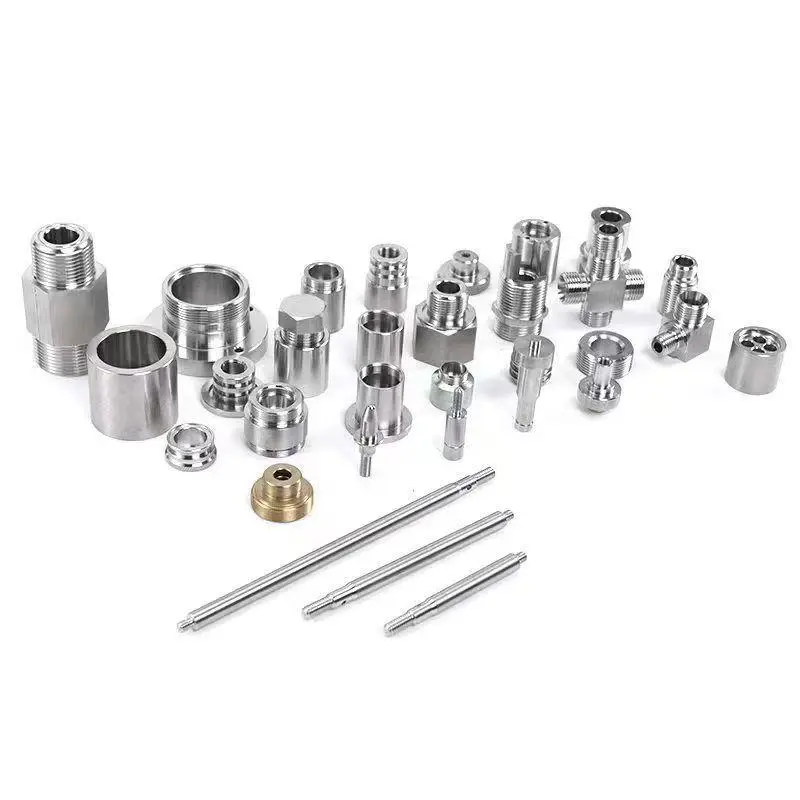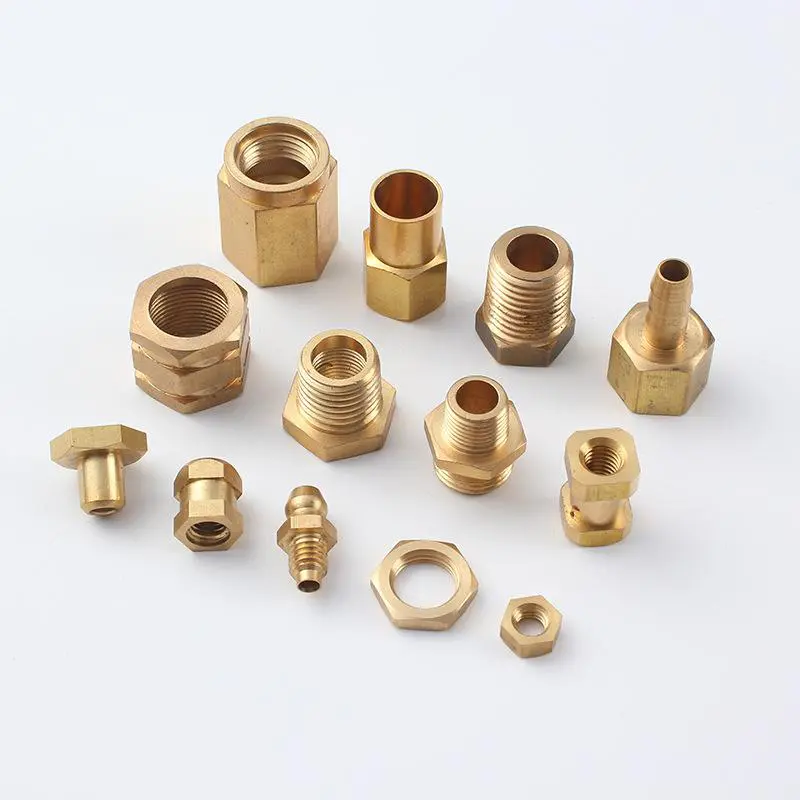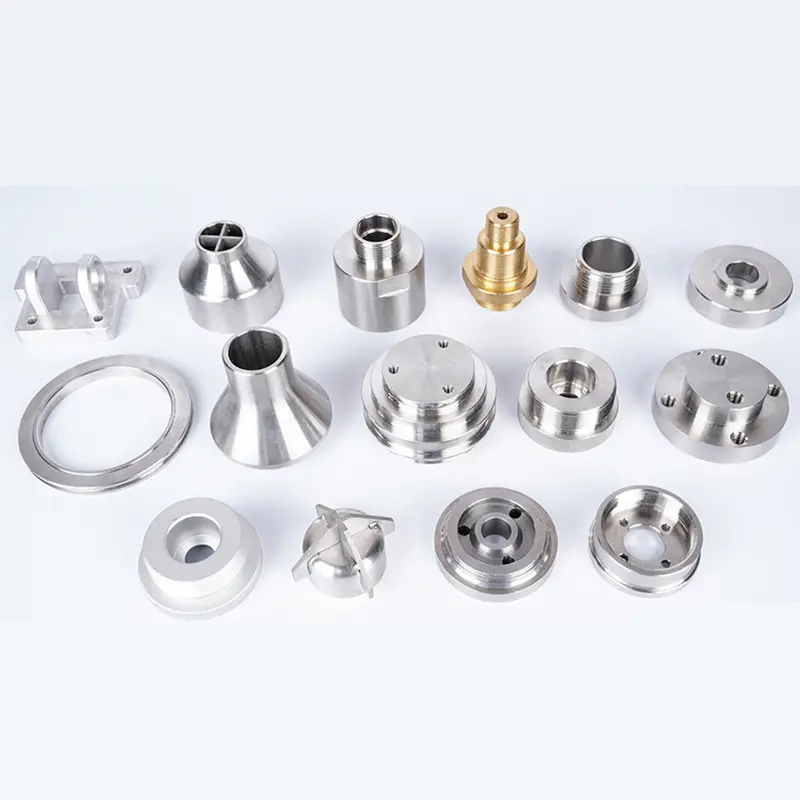The Advantages of Using Stainless Steel for CNC Swiss Machined Parts
Published Time:
2025-09-11
The Advantages of Using Stainless Steel for CNC Swiss Machined Parts
Introduction to CNC Swiss Machining
CNC (Computer Numerical Control) Swiss machining has revolutionized the manufacturing industry by allowing for high-precision, automated machining of complex parts. This technique is particularly beneficial for producing small, intricate components with tight tolerances. Among the various materials available, **stainless steel** stands out as a premier choice for CNC Swiss machined parts, owing to its exceptional properties and versatility.
What is Stainless Steel?
Stainless steel is an alloy primarily composed of iron, chromium, and other elements such as nickel and molybdenum. The presence of chromium is what gives stainless steel its **corrosion-resistant** properties. This material is widely used in manufacturing due to its strength, durability, and aesthetic appeal. When utilized in CNC Swiss machining, stainless steel provides numerous advantages that enhance the efficiency and quality of the final product.
Key Properties of Stainless Steel
Before delving into the advantages of stainless steel for CNC Swiss machined parts, it is essential to understand the key properties that make it a preferred material choice:
Corrosion Resistance
One of the primary benefits of stainless steel is its remarkable corrosion resistance. This property is vital for parts exposed to harsh environments, such as those in the automotive, aerospace, and medical industries. Stainless steel’s ability to withstand oxidation and rust ensures that components maintain their integrity and functionality over time.
Strength and Durability
Stainless steel boasts high tensile strength, making it suitable for applications that require robust and durable parts. Its resistance to deformation under stress allows CNC Swiss machined parts to perform reliably under demanding conditions, reducing the risk of failure.
Ease of Fabrication
Stainless steel is relatively easy to machine, especially when using CNC technology. The precision of CNC Swiss machining allows for intricate designs to be achieved without compromising the material’s integrity. This ease of fabrication reduces production time and costs while increasing overall efficiency.
Aesthetic Appeal
With its shiny, polished finish, stainless steel offers a sleek and modern appearance. This aesthetic quality makes it an attractive option for products that require a visually appealing finish, such as consumer electronics, watches, and high-end kitchenware.
Advantages of Using Stainless Steel for CNC Swiss Machined Parts
The use of stainless steel for CNC Swiss machined parts presents several advantages that cater to various industrial needs:
1. Superior Corrosion Resistance
Stainless steel's inherent resistance to corrosion is one of its most significant advantages. Components made from stainless steel can withstand exposure to moisture, chemicals, and extreme temperatures without compromising their structural integrity. This characteristic is particularly beneficial in industries such as food processing, pharmaceuticals, and marine applications.
2. Enhanced Strength-to-Weight Ratio
Stainless steel offers an impressive strength-to-weight ratio, making it an ideal choice for applications where reducing weight is crucial without sacrificing strength. This property is especially advantageous in the aerospace and automotive sectors, where lighter parts contribute to improved fuel efficiency and performance.
3. Long-Term Cost-Effectiveness
While the initial cost of stainless steel may be higher than some alternative materials, its long-term benefits lead to significant cost savings. The durability and longevity of stainless steel parts reduce the need for frequent replacements and repairs, resulting in lower overall maintenance costs. Additionally, their resistance to corrosion minimizes the risk of costly failures.
4. Versatility in Applications
Stainless steel is incredibly versatile, making it suitable for a wide range of applications. From medical devices to precision instruments and automotive components, stainless steel meets the diverse needs of various industries. This adaptability allows manufacturers to produce high-quality parts across multiple sectors with consistent results.
5. Resistance to High Temperatures
Certain grades of stainless steel are designed to withstand high temperatures, making them suitable for applications involving heat. This property is particularly important in industries such as aerospace, where components must perform reliably under extreme thermal conditions.
6. Reduced Environmental Impact
Stainless steel is 100% recyclable, which significantly reduces its environmental footprint. The ability to recycle stainless steel contributes to sustainable manufacturing practices and aligns with the growing demand for eco-friendly materials in various industries.
7. Consistent Quality and Precision
CNC Swiss machining technology ensures that stainless steel parts are produced with high precision and consistency. This capability is crucial for industries that require parts to meet exact specifications and tolerances. The reliability of stainless steel combined with CNC machining technology results in high-quality components that enhance product performance.
Choosing the Right Grade of Stainless Steel
Selecting the appropriate grade of stainless steel for CNC Swiss machined parts is crucial for maximizing their performance and longevity. Several grades are commonly used, each with unique properties suited for specific applications.
Common Grades of Stainless Steel
- **304 Stainless Steel**: Known for its excellent corrosion resistance and formability, 304 stainless steel is widely used for general-purpose applications.
- **316 Stainless Steel**: Offering superior corrosion resistance compared to 304, 316 stainless steel is ideal for marine and chemical environments.
- **430 Stainless Steel**: A magnetic, lower-cost option, 430 stainless steel is suitable for decorative applications and where corrosion resistance is less of a concern.
- **17-4 PH Stainless Steel**: This precipitation-hardening stainless steel combines high strength and corrosion resistance, making it ideal for demanding applications.
Best Practices for CNC Swiss Machining with Stainless Steel
To achieve optimal results when machining stainless steel parts, manufacturers should follow specific best practices:
1. Tool Selection
Choosing the right tooling is crucial for successful CNC Swiss machining of stainless steel. Carbide tools are often recommended for their hardness and wear resistance. Additionally, using sharp tools can reduce cutting forces and improve surface finish.
2. Cutting Parameters
Establishing appropriate cutting speeds and feed rates is essential for effective machining. Higher cutting speeds can lead to improved surface finish, but the risk of overheating may also increase. Balancing these parameters is key to achieving the best results.
3. Coolant Usage
Using coolants can significantly enhance the machining process by reducing friction and heat, which is particularly important when working with stainless steel. Proper coolant application helps prolong tool life and improve part quality.
Conclusion
Choosing stainless steel for CNC Swiss machined parts offers numerous advantages that enhance performance, durability, and cost-effectiveness. Its superior properties, such as corrosion resistance, strength, and ease of fabrication, make it the material of choice across various industries. By understanding the unique characteristics of stainless steel and implementing best practices in the machining process, manufacturers can produce high-quality components that meet the demands of modern applications. As industries continue to evolve, the role of stainless steel in precision machining will undoubtedly remain significant, providing reliable solutions for complex manufacturing needs.
FAQs
1. Why is stainless steel preferred for CNC machining?
Stainless steel is preferred for CNC machining due to its strength, corrosion resistance, and machinability. These properties make it suitable for a wide range of applications, ensuring longevity and reliability.
2. What are the common grades of stainless steel used in CNC machining?
Common grades include 304, 316, and 430 stainless steel. Each grade offers specific properties that cater to different applications, such as corrosion resistance and strength.
3. How does stainless steel compare to other materials in CNC machining?
Stainless steel generally offers superior strength and corrosion resistance compared to materials like aluminum and plastic, making it a preferred choice for demanding applications.
4. What industries benefit from using stainless steel CNC machined parts?
Industries such as aerospace, automotive, medical devices, and food processing benefit significantly from using stainless steel CNC machined parts due to their durability and performance.
5. Can stainless steel parts be recycled?
Yes, stainless steel is 100% recyclable, making it an environmentally friendly choice for manufacturing and contributing to sustainable practices.
NewsCenter
Beijing Pafinal Precision Machinery Co., Ltd.
Email:sales@pafinal.com

Address: No. 239 Huanhe South Road, Tianjin Pilot Free Trade Zone (Airport Economic Zone), Tianjin
中企跨境-全域组件
制作前进入CSS配置样式
sales@pafinal.com:
Whatsapp:
在线客服添加返回顶部
图片alt标题设置: PAFINAL
表单验证提示文本: Content cannot be empty!
循环体没有内容时: Sorry,no matching items were found.
CSS / JS 文件放置地




 2025-09-12
2025-09-12


